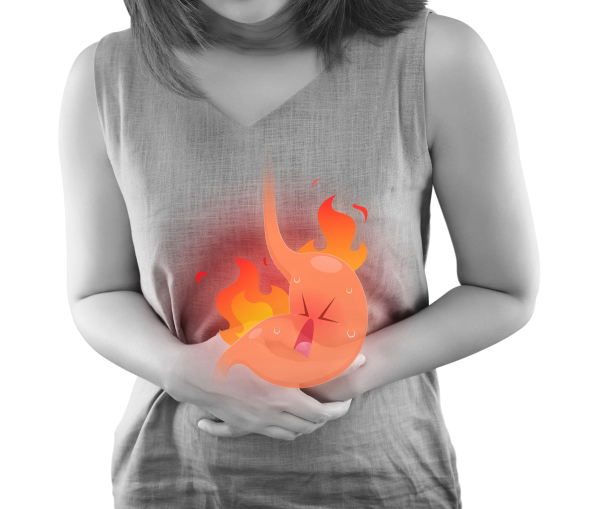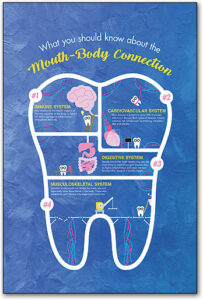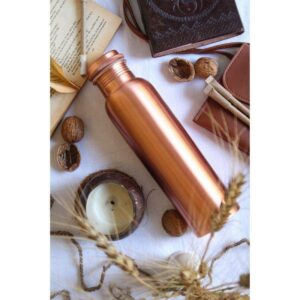Acidity (GERD)
What is Acidity (GERD)
We often say or hear people saying, ‘I feel burning sensation right from chest to stomach or I get burps which makes my throat sore and mouth bitter!’. Are you one of them?
Well, you may be suffering from Acidity! Most of us focus on treating the symptoms directly rather than knowing what is acidity and what causes it?
Let’s go step wise about it and understand in detail.
Acidity also known as acid reflux is a condition where the stomach acid flows back up into the food pipe.
Our food enters into our stomach via oesophagus. After every meal, gastric glands in stomach produces acid for the food to get digested. When more acid is created than required you feel a burning sensation down through your oesophagus. This is known as ACIDITY.
When acidity happens more than two or three times a week you may be diagnosed with GASTROINTESTINAL REFLUX DISEASE (GERD).
What happens in GERD- When increased stomach acid corrodes gastro-oesophageal sphincter, the upward flow of acid starts corroding the esophageal walls reached in our throat. It leaves a bitter taste in our mouth and at times itchy sensation in throat with frequent coughing too.
Another condition which may aggravate GERD is ‘Hiatus Hernia’. In our body , there is an small hole or opening called ‘Hiatus’ through which oesophagus is connected to stomach. During the digestion process, lower oesophageal sphincter (LES) closes itself. In hiatus hernia, LES weakens and the stomach moves upwards via that small opening into oesophagus leading to acid reflux.
Need to consult?

Causes
- Improper chewing or eating wrong food for long run or keeping long hours fasting, whereby acid levels in stomach increases.
- Excessive consumption of certain foods like:
– Beverages like tea, coffee, soda
– Junk and fatty foods like pizzas, chips, burgers, fried items
– Spicy foods - Certain medications like drugs for depression, high blood pressure, antibiotics
- Lifestyle factors like:
– Lack of sleep
– Lying down immediately after meals
– Overeating
– Irregular eating hours
– Skipping of meals
– No exercise
– Excessive intake of table salt and non vegetarian foods
– Excessive stress
Symptoms
The most common symptom is of heartburn i.e. burning pain sensation right from the throat to stomach region.
Apart from this, person may also face other symptoms like:
- Regurgitation- Sour taste in mouth or bitter tasting acid which backs up into mouth and throat
- Nausea
- Burping/hiccups
- Indigestion
- Constipation
- Restlessness
- Dysphagia- Feeling of food is stuck in your throat
- Unexplained weight loss
Complications
If GERD remains untreated, can lead to long term consequences like:
- Tooth Decay – Stomach acid can dissolve the teeth enamel (outer hard covering of the teeth) making them weak and increased risk to tooth cavities.
- Esophagitis – Esophagitis is inflammation of oesophagus. Repetitive reflux of stomach acid irritates the lining of the oesophagus which causes inflammation which soon develops into an ulcer.
- Oesophageal ulcer – Development of sores or ulcers in the oesophagus starts. This leads to difficulty in swallowing, nausea and chest pain.
- Oesophageal strictures – As GERD progresses, the stomach acid scars the lining of oesophagus and the scar keeps on building up. Scar build up narrows the passage area of oesophagus making it difficult to swallow food or liquids to pass by leading to weight loss and dehydration.
- Barret’s Esophagus – An fatal condition where stomach acid changes the cells into a pre cancerous stage. If left untreated, leads to oesophageal cancer.
Use of antacids or acidity reliever soda is widespread in management of acidity or GERD. Has its own set of pros and cons:
- Acts as a coating agent i.e. forms a coat layer to esophagus and stomach so there is less contact of acid to the esophagus and stomach lining relieving the heartburn symptoms
- Antacids are made up of aluminium, calcium, phosphorus, magnesium, sodium bicarbonate. These are neutralizing agents i.e. they lower the gastric pH, makes the acid less acidic. So there is less irritation to esophagus and stomach relieving the reflux symptoms.
These pills or gassy sodas surely help to give a temporary relief. But, not to be taken for daily and ongoing use. In long term, these antacids affect the digestive health system and other organs. The degree to which side effects seen depend on the dosage and duration of the antacids used. Side effects seen are:
- Muscle issues: Antacids being high on calcium, magnesium, phosphorus it disrupts the electrolyte balance in our body which affects nerve and muscle function. You may experience increased episodes of muscle twitching, generalised weakness, muscle pain .
- Breathing issues: Calcium carbonate and sodium bicarbonate in antacids elevate the pH level. When antacids are used daily, constant rise of pH in blood stream body compensates by making the environment alkaline. Alkaline environment affects the breathing capacity. When breathing slows down excessively , carbon dioxide builds up in body leading to fatigue and sleepiness.
- Constipation and diarrhoea: The most common and noticeable symptom . Constipation may affect those who take aluminium or calcium based antacids whereas diarrhoea affects those who take magnesium based antacids. These symptoms continue to exists till antacids aren’t stopped or changed.
- Milk alkali Syndrome: Excessive use of calcium based antacids lead to hypercalcemia or milk alkali syndrome. Calcium starts depositing in all organs starting from kidney, reducing its functioning capacity. If left untreated, leads to Kidney failure and thereby later organ failure. Good news is this syndrome is reversible if the use of antacid is stopped.
Aluminium based antacids shall be also stopped as high levels of aluminium build up in blood will impair the kidney function further.
- Kidney stones:The high levels of calcium in blood stream demands increased excretion of calcium via urine, which leads to formation of stones in kidney.
- Risk of GI infections: Stomach acid not only helps in digestion of food but also protects the GI from the bad bacteria coming from the food or beverage intake. Prolong excessive use of antacid will always neutralise the stomach acid allowing the bad bacteria to survive in the GI tract, weakens ones immunity leading to GI infections .
- Osteoporosis: Aluminium content in antacids disrupts electrolyte balance, flushes out calcium and phosphorus from the body making bones fragile and weak.
Before you head on to popping up antacids and other pills, timely intervention is important.
1.The American of gastroenterology, “Heartburn and Gastrointestinal reflux disease”.
2. National Institutes of health, Gastro-oesophageal reflux disease.
3. Jay W.Marks, Medically reviewed, Jan 2020, GERD (Acid reflux and heartburn)
Food & Wellness | Acidity (GERD) Management Programme
At Food ‘n’ Wellness, learn the new ways to mindfully manage your lifestyle and inculcate new habits in spite of your routine and busy schedule. The program focuses on addressing the root cause of the condition and not just treating it symptomatically. Customised diet plans and lifestyle modifications are suggested taking into consideration your schedule timings, your food preferences, any travel plan and so on. The tenure of the program is for 3-6 months depending on individual response and recovery.

Let's get started with treating your condition...
At Food & Wellness we believe that every individual is different and needs special attention. We adapt our programme to your existing lifestyle and try not to change anything drastically so you can easily transition. Over a period of time we ensure results and help you restore your health.
Acidity (GERD) Articles

Oral Health and Wellness: The Mouth-Body Connection
Your mouth is a mirror of your overall health. Poor oral hygiene can lead to chronic diseases like heart disease, diabetes, and Alzheimer’s—learn how to protect yourself.

Rice Kanji (Probiotic Drink) – A Traditional Wellness Remedy
Rice Kanji, a probiotic-rich drink made from leftover rice and water, offers numerous health benefits, including better digestion, immunity support, and hydration. This traditional remedy has been used for centuries across cultures to promote gut health and overall wellness. Learn how to make this easy-to-prepare, nourishing drink and incorporate it into your daily routine.

The Benefits of Drinking Water from Copper Vessels: A Journey to Better Health
In recent years, drinking water from copper vessels has become increasingly popular due to its potential health benefits. Copper has been used for centuries in various cultures for its healing properties, and research has shown that it can reduce inflammation, aid in digestion, boost the immune system, regulate thyroid function, and even aid in weight loss. However, it’s important to take precautions and ensure that the copper vessel is pure, properly cleaned, and not used to store acidic liquids. In this blog, we will explore the benefits and precautions of drinking water from copper vessels
